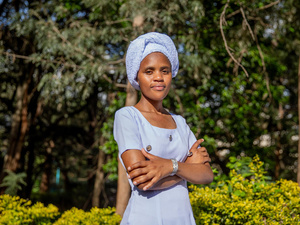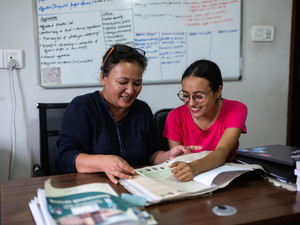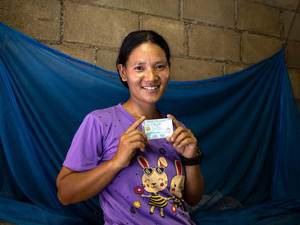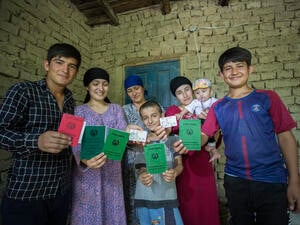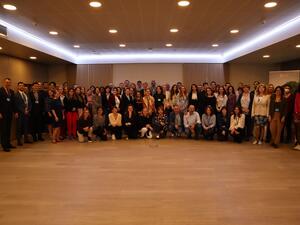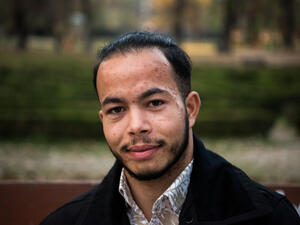Latin America nations pledge more for protection of the displaced and stateless
Latin America nations pledge more for protection of the displaced and stateless

Participants at the international meeting in Brasilia on refugee protection, statelessness and mixed migratory movements.
BRASILIA, Brazil, November 12 (UNHCR) - Eighteen Latin American nations have wrapped up an important meeting in Brazil with agreement to do more for the protection of forcibly displaced and stateless people in the region. The pledge came in the "Brasilia Declaration on the protection of refugees and stateless persons in the Americas," adopted Thursday in the Brazilian capital.
UN High Commissioner António Guterres, in a message released Friday in Geneva, welcomed the declaration, which came at the end of a meeting hosted by Brazil's Justice Ministry on refugee protection, statelessness and mixed migratory movements in the Americas.
"This is a landmark declaration that I hope will result not only in better protection for refugees and other displaced people across the Americas, but also accelerate global efforts to improve the situation of displaced people and end the scourge of statelessness," Guterres said.
"I encourage governments in other regions to take note of the pioneering leadership that has been shown today by Latin America in making this Declaration. This is a valuable international precedent," the High Commissioner added.
A highlight of the Brasilia Declaration includes the unrestricted respect countries have for the principle of non-refoulement (non-forced return), including non-rejection at borders and non-penalization of illegal entry. It also supports the continued incorporation of gender, age and diversity considerations into national laws on refugees and internally displaced people.
And thirdly, the Declaration encourages states to adopt mechanisms to address new situations of displacement not foreseen by the 1951 UN Refugee Convention. It reaffirms many of the commitments made by the 20 countries that adopted the 2004 Mexico Plan of Action, which aims to safeguard refugees in Latin America.
Senior UNHCR officials, including Director of International Protection Volker Türk, were among some 120 people attending the meeting, which also marked the launch of UNHCR's 60th anniversary commemorations in the Americas.
Türk, while noting the Americas' long tradition of providing asylum and protection to people in need as well as the region's history of good practices, stressed that many challenges remain. He singled out urbanization, gang-related violence, mixed migration, internally displaced people and statelessness.
As well as celebrating it's 60th birthday, UNHCR will over the next year also mark the 50th anniversary of the 1961 UN Convention on the Reduction of Statelessness, one of two UN conventions which address statelessness. The refugee agency will be making a big push to persuade more countries to accede to the conventions and to reduce the number of stateless people, estimated to be some 12 million.

Brazil's Justice Minister Luiz Paulo Barreto (left) and UNHCR's Volker Türk try the “Put yourself in a refugee´s shoes” feature.
Although statelessness is relatively rare in the region, Türk urged more countries in the Americas to accede to the two conventions, noting that a mere six countries were parties to the 1961 convention and only 13 had acceded to the 1954 Convention relating to the Status of Stateless Persons.
"Our office stands ready to support governments wishing to become parties to these conventions," he said.
On the sidelines of Thursday's gathering, UNHCR's Türk and conference host, Brazilian Justice Minister Luiz Paulo Barreto, helped launch an awareness campaign - "Put Yourselves in a Refugee's Shoes" - to promote tolerance for refugees, discover their stories and counter discrimination.
The countries that adopted the Brasilia Declaration are Argentina, Bolivia, Brazil, Chile, Colombia, Costa Rica, Cuba, Dominican Republic, Ecuador, El Salvador, Guatemala, Mexico, Nicaragua, Panama, Paraguay, Peru, Uruguay and Venezuela. The United States and Canada participated as observers in the Brasilia international meeting.

